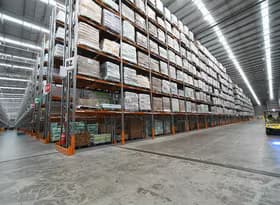Russian invasion to increase prices, global uncertainty
The global security picture has been upended after the Russian invasion of Ukraine last week, with heavy fighting across all invasion fronts, substantial sanctions on Russia by Western countries, and Russian President Vladimir Putin ordering the country’s nuclear deterrence forces “to a special mode of combat duty.” Global tensions are ratcheting higher, with increased uncertainty about the global economic outlook. Prices for energy products, farm inputs, and metals have risen, and financial markets are volatile as the Russian financial system feels the pressures of isolation.
For the New Zealand economy, the Russian invasion of Ukraine is unlikely to have substantial consequences for direct trade. But rising global prices for a range of commodities are likely to further increase inflationary pressures for producers and consumers.
Global prices likely to raise inflationary pressures
The major influence on the New Zealand economy from the Russian invasion is likely to be from rising global commodity prices. Russia is a major supplier of energy products globally, and particularly in Europe, which has sent oil and gas prices up. Brent oil prices rose to over US$100/bl after the invasion commenced, having steadily climbed above US$80/bl since the start of 2022. OPEC appears unwilling to expand production output immediately, and any additional oil supply from a potential Iran nuclear agreement is likely to take a while to come on stream. Some countries are looking at releasing some of their strategic oil reserves if required.
For New Zealand, the sustained higher price for global crude oil could push the main port price for 91 petrol to above $3.00/L in the coming weeks.
Food prices are also likely to come under further pressure, both from higher transport prices as fuel costs rise, but also from higher input commodity prices. Direct food imports are likely to see price increases, and farm inputs for New Zealand farms are also expected to get more expensive. Russia and Ukraine are key exporters of wheat, corn, and sunflower oil. Compared to the start of 2020, wheat prices were up 34% at the start of 2022, and sunflower oil prices were up 71%, with expectations that both prices could head higher and stay higher on supply disruptions.
Russia is also a key exporter of fertilizer, which has already seen substantial price rises in recent times. World Bank data shows a 292% increase in global fertilizer prices between January 2020 and January 2022, with New Zealand fertilizer input prices up over 50%pa in the December 2021 quarter. Increasing fertilizer prices further are likely to add pressure to farm costs and raise the price of foodstuffs.
Limited, but not inconsequential direct trading fallout
Over the year to September 2021, Russia was New Zealand’s 28th largest export recipient, taking around $300m of Kiwi exports. Nearly half of these exports were for dairy products. About 75% of exports to Russia are food and beverage products. New Zealand sanctions on exports to Russia’s military forces could affect around $38m in exports, according to rough analysis from Infometrics, which assumes the sanctioning of exports constituting a number of non-food exports with potential military uses.
As Chart 1 show, one small but surprising element of New Zealand’s trade with Russia is the nearly 13% of New Zealand’s $21m annual footwear exports that Russia took in 2021 – the largest export concentration to Russia.
On the imports side, Russia is important for some oil products, fertilisers, and nickel.
Heightened uncertainty and geopolitical brinkmanship
So far, markets have been volatile in the wake of the Russian invasion. But even greater volatility has been limited by the targeting of sanctions on Russia away from fuels, to limit the fallout on energy prices.
However, stronger sanctions are being actioned globally, include a substantial cut off of Russia from the SWIFT global payments network, which will significantly hinder Russian financial activity. Limitations on the Russian central bank will also exacerbate domestic economic challenges for Russia.
A key indirect player in the Russian invasion of Ukraine is China, who could provide a lifeline for the Russian economy, or further limit Russian economic activity.
All eyes remain on Eastern Europe, both for how the invasion plays out, but also the future of geopolitical outcomes and order globally.




